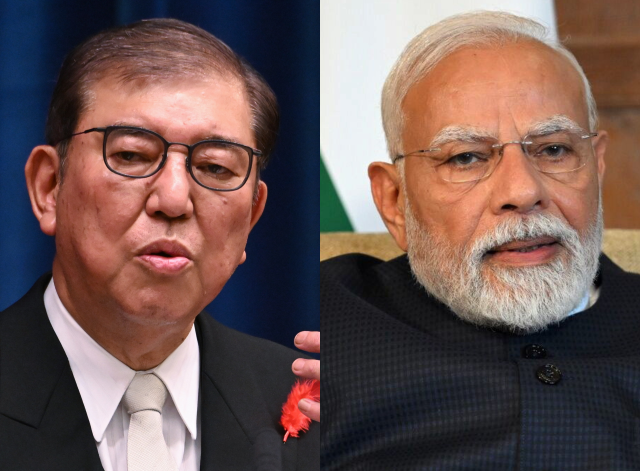
TOKYO, Japan – In a powerful display of deepening bilateral relations, Japanese Prime Minister Shigeru Ishiba and Indian Prime Minister Narendra Modi traveled together on the Shinkansen, Japan's iconic high-speed train, from Tokyo to Sendai in Miyagi Prefecture. The journey, which included a visit to a crucial semiconductor manufacturing plant, underscored a strategic alliance focused on technological cooperation and economic security, particularly in the face of growing geopolitical challenges.
The high-profile trip, which took place on August 30, was more than a mere courtesy visit. It was a carefully orchestrated showcase of Japanese technological prowess, particularly in the rail sector. As the two leaders journeyed north, they were given a special viewing of the "ALFA-X," a test-bed vehicle for the next generation of Shinkansen technology. JR East officials explained the innovations being developed for the new "E10 series" trains, set to debut after April 2030. India, which is constructing its first high-speed rail corridor in the west, has expressed a keen interest in adopting the E10 series, signaling a significant future collaboration that could see Japanese rail technology exported on a massive scale.
This high-speed diplomacy is not new for the two nations. It recalls a similar gesture in 2016 when then-Prime Minister Shinzo Abe also accompanied Modi on a Shinkansen trip. The repeat performance highlights Japan's commitment to promoting its "bullet train" technology as a symbol of reliability and efficiency—qualities India seeks to replicate in its own infrastructure ambitions.
Beyond the rails, the visit delved into the critical area of economic security. Following their train journey, the two leaders toured a factory belonging to Tokyo Electron, a leading manufacturer of semiconductor production equipment, in Miyagi Prefecture. This visit was particularly symbolic, as it addressed a central pillar of their strategic partnership. Tokyo Electron has a collaboration agreement with Tata Electronics in India, focusing on talent development and technical support. The company has also established its first Indian R&D base in Bengaluru, a move that solidifies a joint commitment to building a resilient and sustainable semiconductor supply chain.
At a press conference following the factory tour, Prime Minister Ishiba emphasized the shared vision, stating, "Our two nations will push forward with cooperation to strengthen the semiconductor supply chain and enhance economic security." This statement echoes the recent agreement forged during the leaders' summit in Tokyo a day earlier, where they announced the establishment of a new "Economic Security Initiative." This framework is designed to ensure the stable supply of critical materials, including semiconductors, and reduce dependency on a single country—an thinly veiled reference to China. The initiative signals a joint effort to diversify supply chains and mitigate risks, reflecting a growing alignment between Japan and India on regional and global security matters.
The visit also provided a moment for the leaders to discuss broader geopolitical issues. Prime Minister Modi's visit to Japan, his first since May 2023, precedes his attendance at the Shanghai Cooperation Organization (SCO) summit in Tianjin, China, on August 31. This itinerary highlights India's complex diplomatic balancing act—engaging with key allies like Japan while also participating in forums that include rivals. The focus on economic security and supply chain resilience with Japan serves to strengthen India's strategic autonomy and its position as a key player in the Indo-Pacific region.
In an increasingly fragmented global landscape, the partnership between Japan and India is emerging as a cornerstone of stability and growth. By leveraging Japan's technological expertise and India's vast and rapidly growing market, the two nations are not only strengthening their own economies but also laying the groundwork for a more robust and secure global supply chain. The images of their shared journey on the Shinkansen serve as a powerful metaphor for their collaborative future, moving forward on a track of shared interests and mutual prosperity.
[Copyright (c) Global Economic Times. All Rights Reserved.]





























